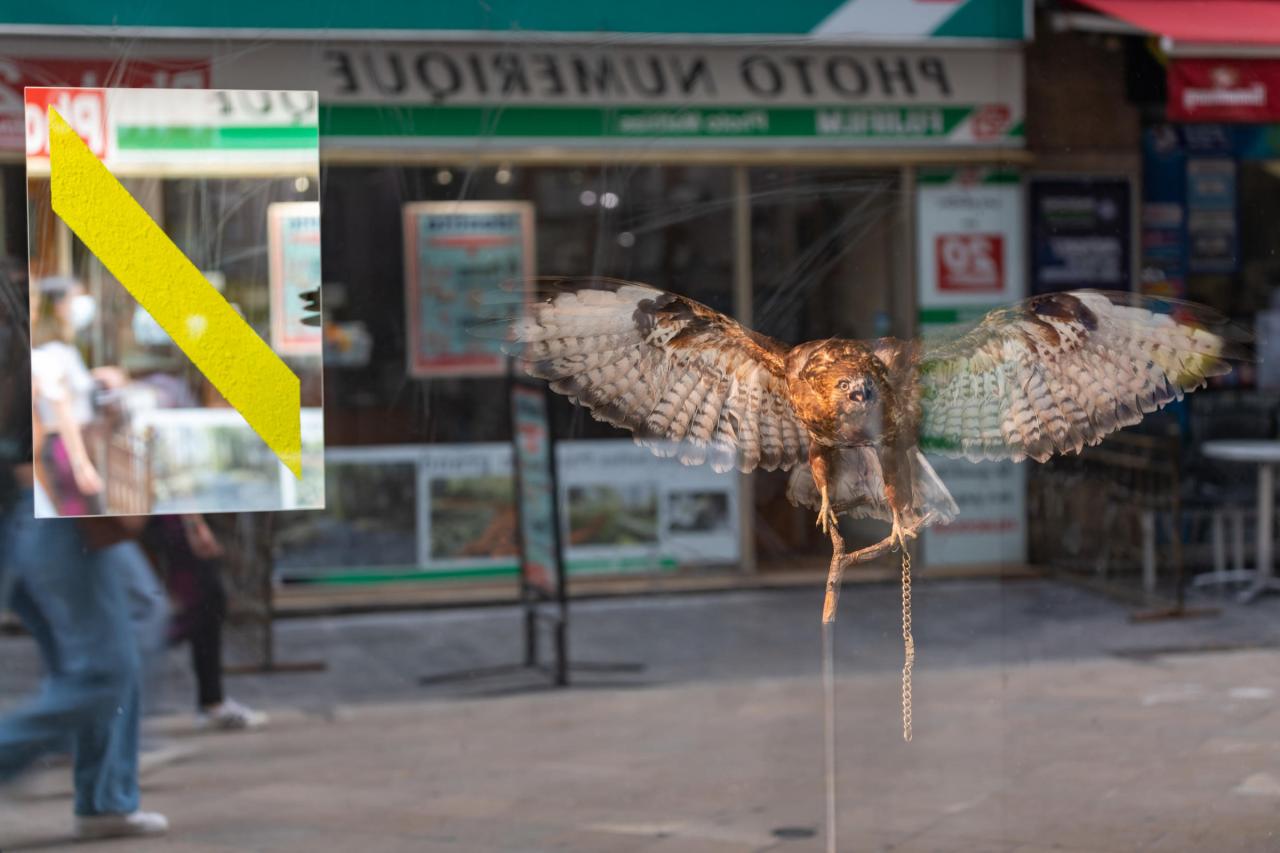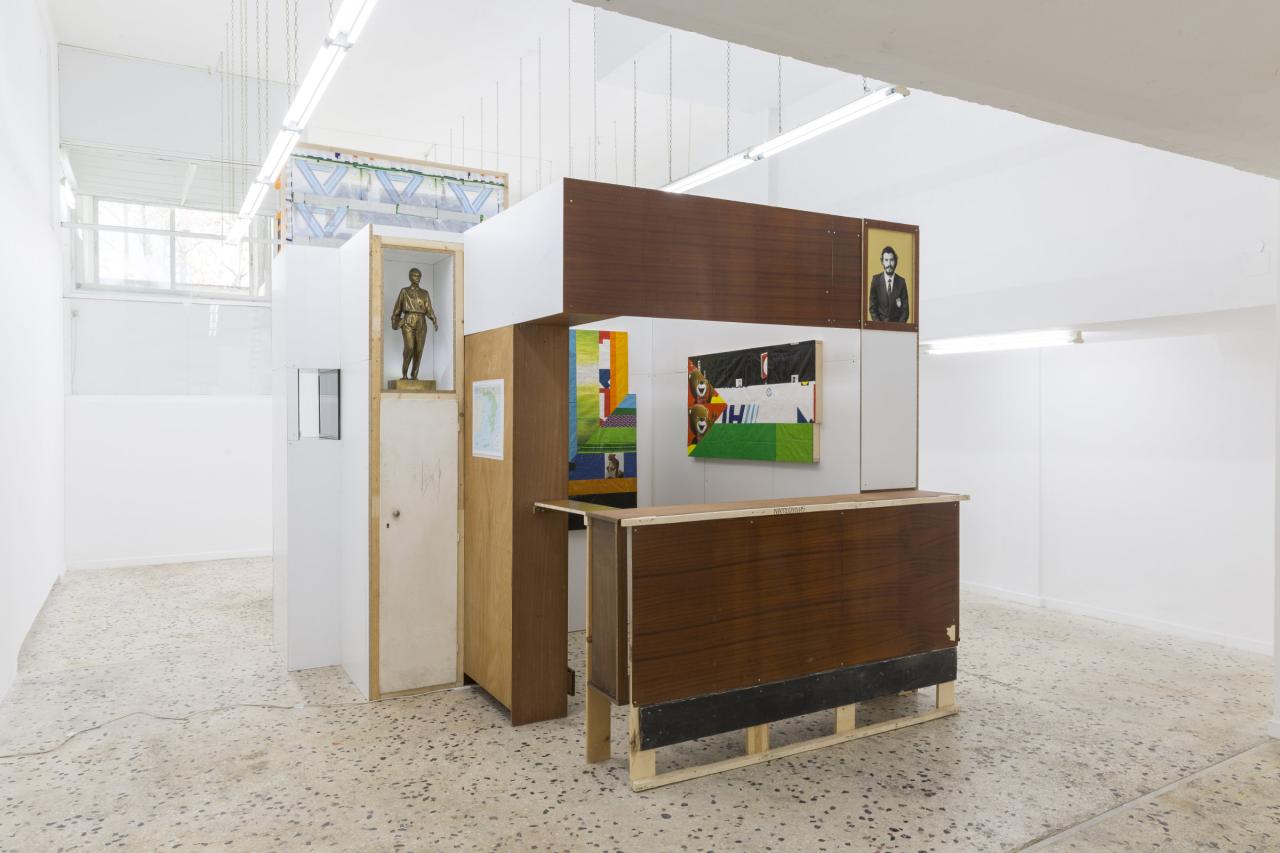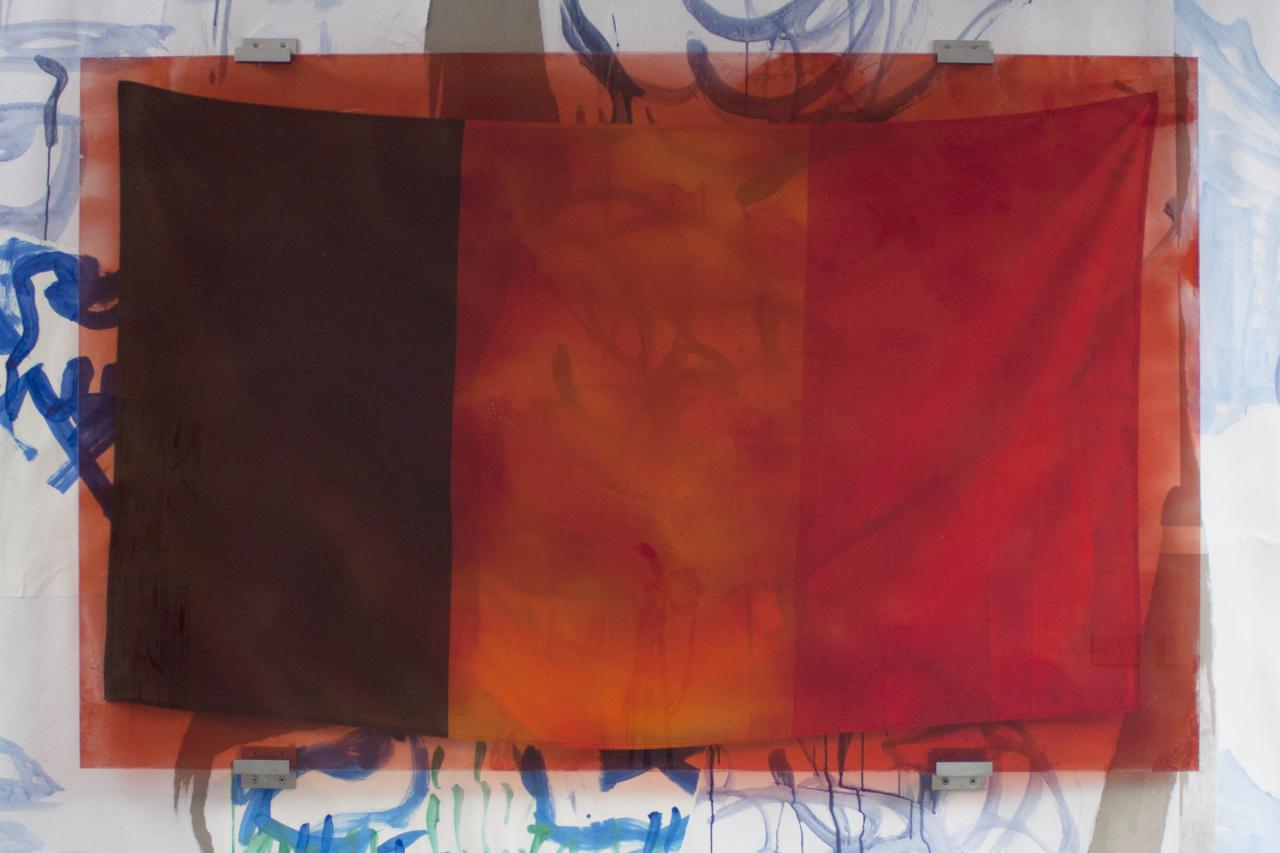Nicolas Milhé
Born in 1976
Lives and works in Bordeaux and Paris



The Latin phrase “Respublica” made into a giant lighted sign, bars that draw inspiration from the architecture of a pyramid or a chapel (both topped with bell towers, one of which is reminiscent of a gallows), a model of a platform facing a mirror, a gold-toothed hyena, heraldic paintings, multiple references to Rosa Luxemburg (a figure of the struggle for proletarian internationalism who was assassinated by her former comrades from the Social Democratic Party): while Nicolas Milhé may wave off the notion of political art, one cannot help but notice a formidable sense of cynicism in his pieces, which seem to especially flourish when they lean toward political matters and the common weal. His work generally focuses on symbols of power that hardly encourage contemplation, the unequivocal nature of which he upends by turning them into forms conducive to aesthetic scrutiny. This manipulation results in a revelation of the codes they utilise.
Hélène Dantic
Translated by Lucy Pons, 2024
© Adagp, Paris